Improve your own or your staff’s frontline knowledge, skills and practice in health and social care with the latest e-learning courses from SCIE.
Continue my e-learning course(s)
Visit shopping basket
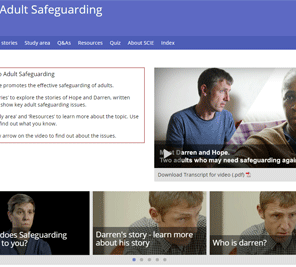
Safeguarding adults: Working in social care
What is it about?
Explore what safeguarding adults means and how to manage it effectively.
Who is it for?
All frontline health and social care staff.
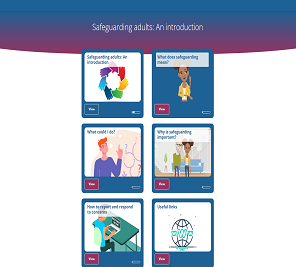
Safeguarding adults: For those not in social care
What is it about?
Explore what safeguarding adults means and how to manage it effectively.
Who is it for?
For people who don’t work in social care

Safeguarding adults: Training webinar series
What is it about?
Explore what safeguarding adults means and how to manage it effectively.
Who is it for?
All frontline health and social care staff.
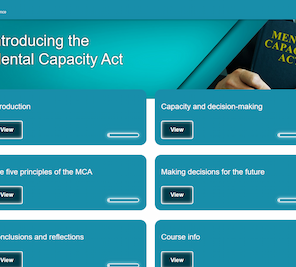
Mental Capacity Act (MCA)
What is it about?
Explore the MCA 2005 and how to support people to make their own decisions.
Who is it for?
All staff who look after or care for someone.
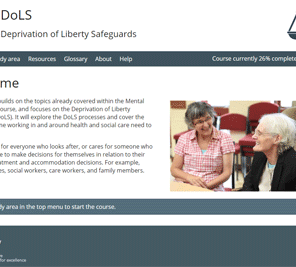
Deprivation of Liberty Safeguards (DoLS)
What is it about?
Find out more about specific DoLS processes. It builds upon our MCA e-Learning course.
Who is it for?
All staff who look after or care for someone.
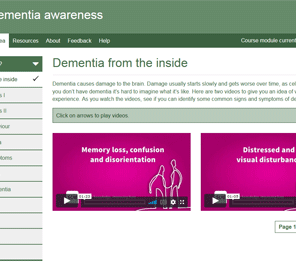
Dementia awareness
What is it about?
Learn about what dementia is and how to live with it. Aligned with Tier 1 of the National Dementia Training Standards Framework.
Who is it for?
All staff who work with people living with dementia.
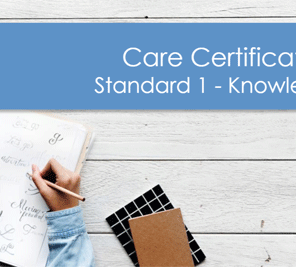
Care certificate
What is it about?
Study the 15 care standards set by the CQC.
Who is it for?
All staff working in health or social care.
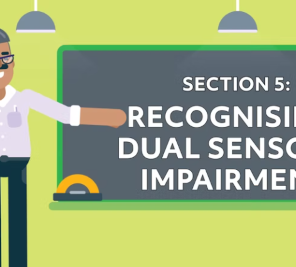
Dual Sensory Impairment (DSI)
What is it about?
Explore what DSI means, how to recognise it, and what practical approaches can help
Who is it for?
All social care professionals and those receiving social care support.
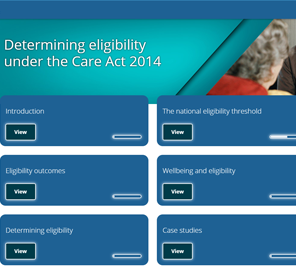
Determining eligibility under the Care Act 2014
What is it about?
Deep dive into the national eligibility threshold and criteria for adults requiring care and support, and carers requiring support.
Who is it for?
Social care practitioners, social workers, occupational therapists and ‘third-party’, ‘community’ or ‘trusted’ assessors.
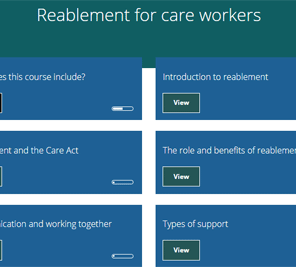
Reablement for care staff
What is it about?
Explore reablement, how it differs from home care and intermediate care, and why and how the service should be delivered.
Who is it for?
Frontline health and social care staff, including home care staff.
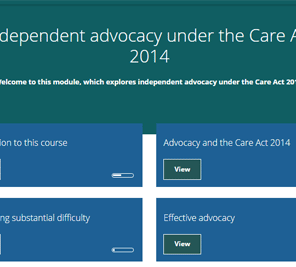
Advocacy (Care Act)
What is it about?
Explore independent advocacy under the Care Act 2014
Who is it for?
All social care staff, including those working in initial contact centres.
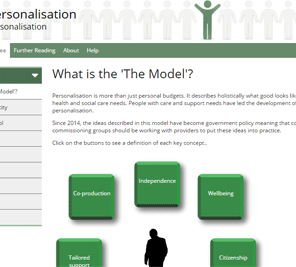
Personalisation
What is it about?
Explore what personalisation means, why it is important and what it looks like put in practice.
Who is it for?
All social care professionals and those receiving social care support.
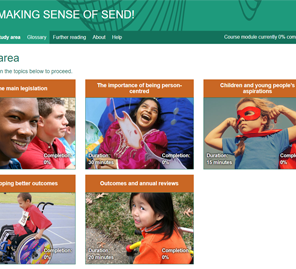
Making sense of SEND!
What is it about?
Explore the SEND Code of Practice 2015 and how it influences the way support is provided for children with special educational needs and disabilities.
Who is it for?
Professionals who work with children with SEND.
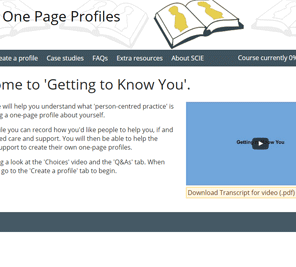
One Page Profile
What is it about?
Understand what a one-page profile is, and how to complete one, to help you achieve excellent person-centred care.
Who is it for?
All social care professionals and those receiving social care support.
